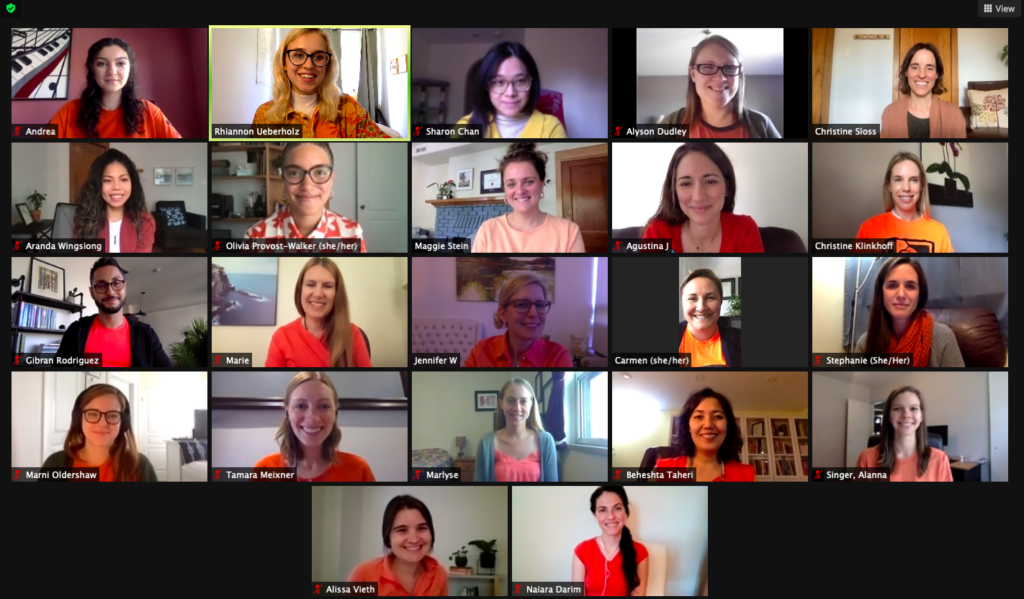By Rhiannon Ueberholz (B.A)
September 30th, 2021, marks the first National Day for Truth and Reconciliation (NDTR), a day to reflect on Canada’s colonial past and the legacy of residential schools. Established as a statutory holiday in July of this year, this day serves to hold Canadian’s accountable for upholding the process of reparation for Indigenous people. This year highlights the necessity of Canadian citizens and government explicitly to take action upon the horrific discovery of 215 unmarked graves in Kamloops, British Colombia, on land that housed a former residential school. This statutory holiday came in response to the 94 Calls to Action proposed by the Truth and Reconciliation Commission, addressing the need for equal education opportunities, just treatment in the legal system, the integration of Indigenous history into the Canadian education system, and continued investigation into unmarked graves of Indigenous children.
The date of September 30th was chosen to hold space for the experiences of First Nations, Métis and Indigenous people, as this is the time of year when children would have begun their residential schooling. It also coincides with Orange Shirt Day, which started in 2013 with Phyllis Jack Webster’s brave sharing of her experience with the residential school system. On her first day of residential schooling, Phyllis was stripped of her clothes, including an orange t-shirt that her grandmother gave her; her story represents the stripping of Indigenous rights and identity.
This statutory holiday provides Canadians with the opportunity to reflect on our past and show support for Indigenous people. Here is a list of ways you can commemorate the NDTR.
Educate
Read about the Truth and Reconciliation Commissions 94 Calls to Action.
Aboriginal People’s Television Network will be broadcasting several documentaries on Indigenous history and reconciliation.
Learn about the history of the land you currently occupy. This interactive map allows you to learn about the history and Indigenous languages native to your location.
Donate
True North Aid provides humanitarian support to Indigenous people to assist those living below the poverty line.
The Native Women’s Association of Canada represents the political voice of Indigenous Women and Girls on issues of reproductive rights, violence prevention, and education.
Participate
Wear orange to participate in Orange Shirt day; you can order an orange shirt here, and all proceeds will go to the Orange Shirt Society to support awareness activities
Learn and hold space for the lives of residential school students whose bodies were recently uncovered and identified. Their names can be found here.
Take a moment of silence at 2:15 PM for the 215 graves found in Kamloops.
Attend The Unity Jam, an outdoor concert featuring performances by Indigenous artists. You can also donate to the artists performing and to help cover the costs of the concert.
Mental Health Support for Indigenous People
Indigenous persons experience higher rates of PTSD, stress and anxiety compared to non-Indigenous counterparts (Bellamy & Hardy, 2015; Arriagada et al., 2020). These mental health disparities can be attributed to the lasting effects of intergenerational trauma, poorer living conditions and lack of mental health access (Arriagada et al., 2020). Recently, greater efforts have been made to increase mental health support services for Indigenous people in a culturally informed manner. The Canadian Mental Health Association has created programs that use traditional approaches native to First Nations, Métis and Inuit persons, such as healing circles and fostering connections to elders. The non-profit organization, Finding Our Power Together provides education and therapeutic programs that teach DBT skills to Indigenous youth using a culturally relevant approach.
The following are programs and support services for Indigenous persons:
1. Indigenous Friendship centres are centres across Ontario that offer health and services for children age 7 to 15 and their families, as well as the Children Who Witness Violence Program for Children aged 7 to 14
First Nations, Métis & Inuit Hope for Wellness Help Line: 1-855-242-3310 is available for First Nations, Métis and Inuit persons experiencing emotional distress.
The Shkaabe Makwa program at CAMH collaborates with mental health provides across Ontario to provide services to First Nations, Inuit and Métis persons.
Métis Nation of Ontario provides screening, assessment, case management and traditional healing.

References
Arriagada, P., Hahmann, T., & Donnell, V. (2020, June 23). Indigenous people and mental health during the COVID-19 pandemic. Statistics Canada. Retrieved from https://www150.statcan.gc.ca/n1/pub/45-28-0001/2020001/article/00035-eng.htm.
Bellamy, S., & Hardy, C. (2015). Post-Traumatic Stress Disorder in Indigenous People of Canada. National Collaboration Centre for Indigenous Mental Health. Retrieved from https://www.ccnsa-nccah.ca/docs/emerging/RPT-Post-TraumaticStressDisorder-Bellamy-Hardy-EN.pdf.
Image retrieved from the National Truth and Reconciliation Commission website.